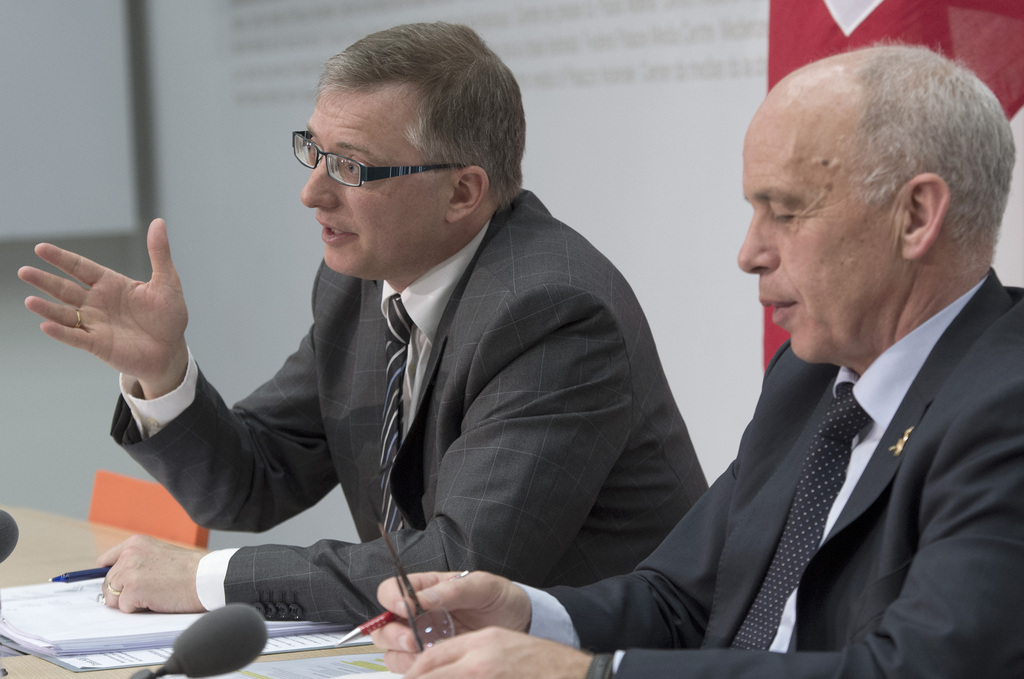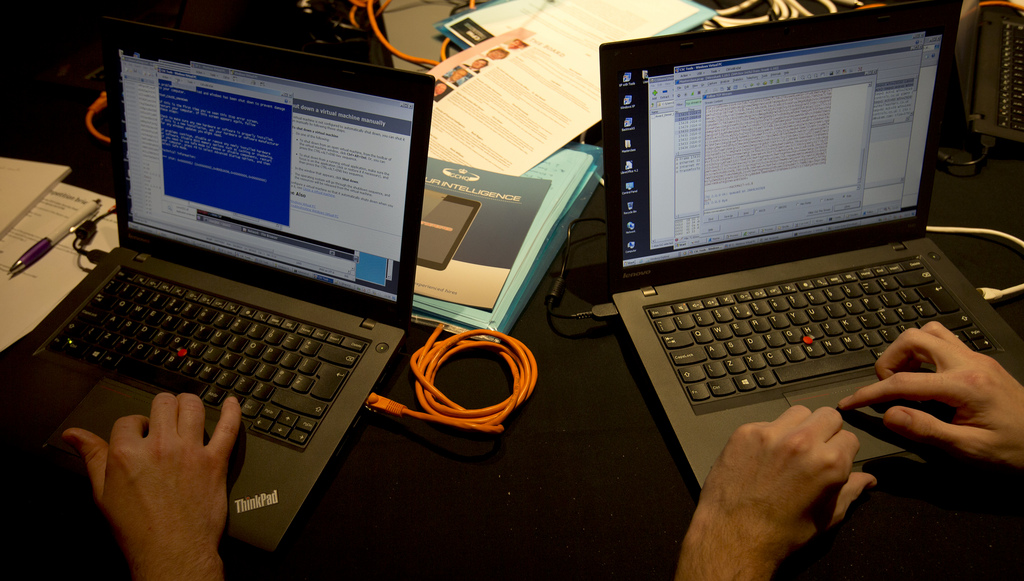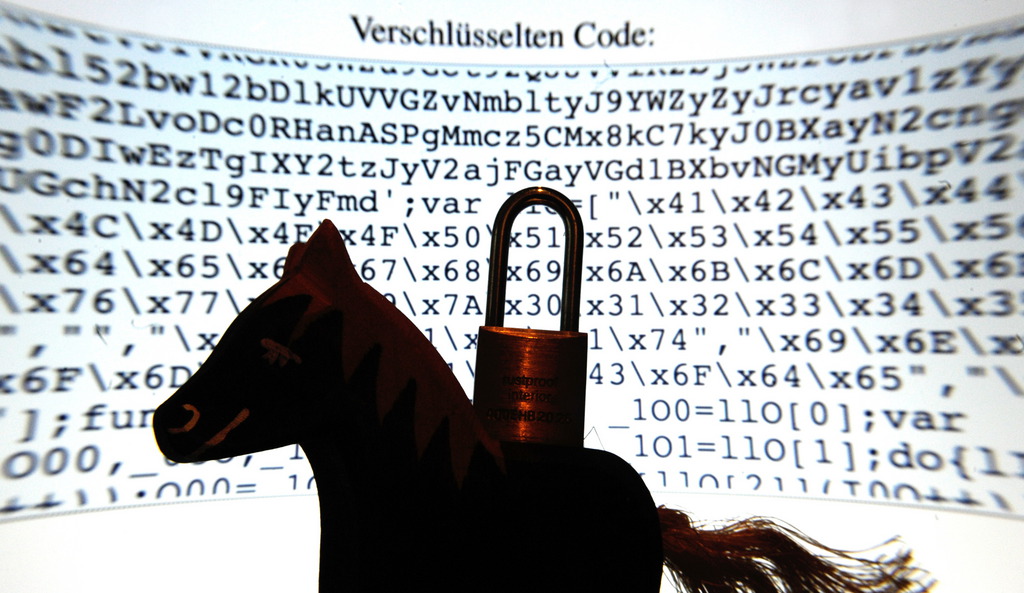Secret service to prick up its ears

Plans to grant the intelligence service greater powers are likely to pass a first hurdle in parliament this week. However, opponents warn of a blanket clause which would infringe on civil rights and lack the necessary constitutional backing.
When Defence Minister Ueli Maurer presented the government bill 12 month ago, he assured the aim was not to introduce exhaustive surveillance measures against citizens, but to weigh up security concerns and personal freedom.
Under the proposed reform, secret service agents will be allowed to tap phone lines and the internet as well as bug private apartments to prevent terrorist attacks and spying activities.
Initial criticism – notably among the political left – against the legal amendment appears to have been swept away by a centre-right majority in parliament despite the revelations in 2013 by Edward Snowden about the invasive covert activities of the National Security Agency (NSA) and other secret services.
In the Swiss parliament, the House of Representatives security committee had overwhelmingly recommended approval of the bill before the attacks by Islamic militants in Europe earlier this year.
Jakob Büchler, senior member of the committee, is convinced that stepping up surveillance is the right answer.
“It is the only way to cooperate with other secret services on a level playing field and to protect people and the country,” he says.
Sea change
However, several senior legal experts have voiced strong reservations.
Rainer Schweizer, professor of law at the University of St Gallen, sees a sea change about to take place.
“For the first time Switzerland’s secret service could wiretap citizens based simply on an assumed threat. It would not even need to prove a concrete suspicion,” he says.
Citizens have no right to legal protection or to receive access to information about a possible investigation underway against them. This goes against European human rights, according to Schweizer.
Schweizer is even concerned that terrorists could ultimately escape before they are arrested because of unclear procedures between secret services and justice authorities.
He is calling for the debate in parliament to be shelved until precise rules are established.
The bill to be debated in the House of Representatives focuses on the powers of the Swiss intelligence service. Later this year parliament may also begin discussions about a separate law on the surveillance of telecommunications data. In 2008, parliament threw out a similar bill giving the secret services increased powers.
The debates come against the background of a major scandal, uncovered in the late 1980ies, involving the state collecting information on about 900,000 people and organisations considered a potential threat for Switzerland during the Cold War era.
Beyond state security
Senior legal consultant Markus Mohler, former lecturer at Basel and St Gallen universities, agrees that the secret services must be granted additional means for early defence against terrorist attacks in order to prevent foreign intelligence services from carrying out illegal activities on Swiss territory.
But he argues that the powers given to the government would reach far beyond ensuring state security. “There is not even the indispensable basis in the constitution,” he says.
Mohler, who also was prosecutor and commander of police as well as government advisor, says that state agents would hold equal or even more powers than criminal investigation authorities.
Pledges by the government to have wiretapping approved by a judge of the Federal Court and of the defence minister are not sufficient, he says.
“The planned law tips the balance between freedom and security. This is inadmissible,” Mohler concludes.
Instead, he proposes setting up a three-strong panel of judges for so called deep invasions into privacy to minimise abuses.
Comparison
Both experts agree that a planned provision on wiretapping between sender and recipient in Switzerland is set to lack the necessary efficiency as about half of the contacts via cable pass through servers out of reach for the Swiss authorities.
If the amendments were to win approval by both chambers of parliament, citizens’ rights in Switzerland, notably the rules of privacy, would still enjoy better protection against intelligence service intrusions compared with the US, Britain or neighbouring France, says Mohler.
Schweizer takes a slightly different view. “When it comes to access to secretly obtained intelligence data, people in Switzerland would have less rights than in the US and in Germany for instance,” he says.

In compliance with the JTI standards
More: SWI swissinfo.ch certified by the Journalism Trust Initiative






You can find an overview of ongoing debates with our journalists here. Please join us!
If you want to start a conversation about a topic raised in this article or want to report factual errors, email us at english@swissinfo.ch.